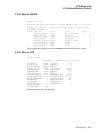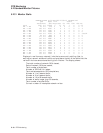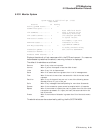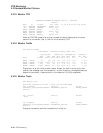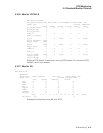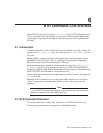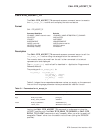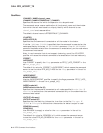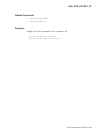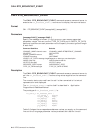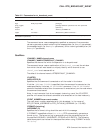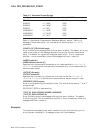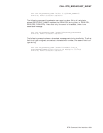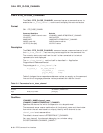
CALL RTR_ACCEPT_TX
CALL RTR_ACCEPT_TX
The CALL RTR_ACCEPT_TX command causes a command server to execute
the
rtr_accept_tx( )
routine and to display the returned status.
Format
CALL RTR_ACCEPT_TX
Command Qualifiers Defaults
/CHANNEL_NAME=channel-name /CHANNEL_NAME=RTR$DEFAULT_CHANNEL
/CLUSTER /NOCLUSTER
/FORGET /NOFORGET
/INDEPENDENT NOINDEPENDENT
/NODE[=node-list] /NODE=default-node-list
/OUTPUT[=file-spec] /OUTPUT=stdout
/REASON[=reason] /REASON=0
Description
The CALL RTR_ACCEPT_TX command causes a command server to call the
rtr_accept_tx( )
routine using values supplied on the command line.
The numeric status returned from the call is then converted to its textual
representation and displayed.
The
rtr_accept_tx( )
routine itself is described in Application Programmer’s
Reference Manual.
The prototype of
rtr_accept_tx( )
is:
rtr_status_t rtr_accept_tx (
rtr_channel_t channel,
rtr_acc_flag_t flags,
rtr_reason_t reason
);
Table 6–1 shows the correspondence between values you supply on the command
line and the C language parameter values produced and used for the call.
Table 6–1 Parameters for rtr_accept_tx
C Parameter Name C Parameter Value Command Line Specification
channel /CHANNEL_NAME=name
flags RTR_NO_FLAGS [none] [D]
RTR_F_ACC_FORGET /FORGET
reason RTR_NO_REASON /NOREASON [D]
reason_value /REASON=reason_value
Issuing the CALL RTR_ACCEPT_TX command in preference to using the
/ACCEPT qualifier with the CALL RTR_SEND_TO_SERVER or CALL RTR_
REPLY_TO_CLIENT commands is only necessary when you wish to specify an
acceptance "reason" other than the default value of zero (using the /REASON
qualifier).
RTR Command Line Interface 6–3



